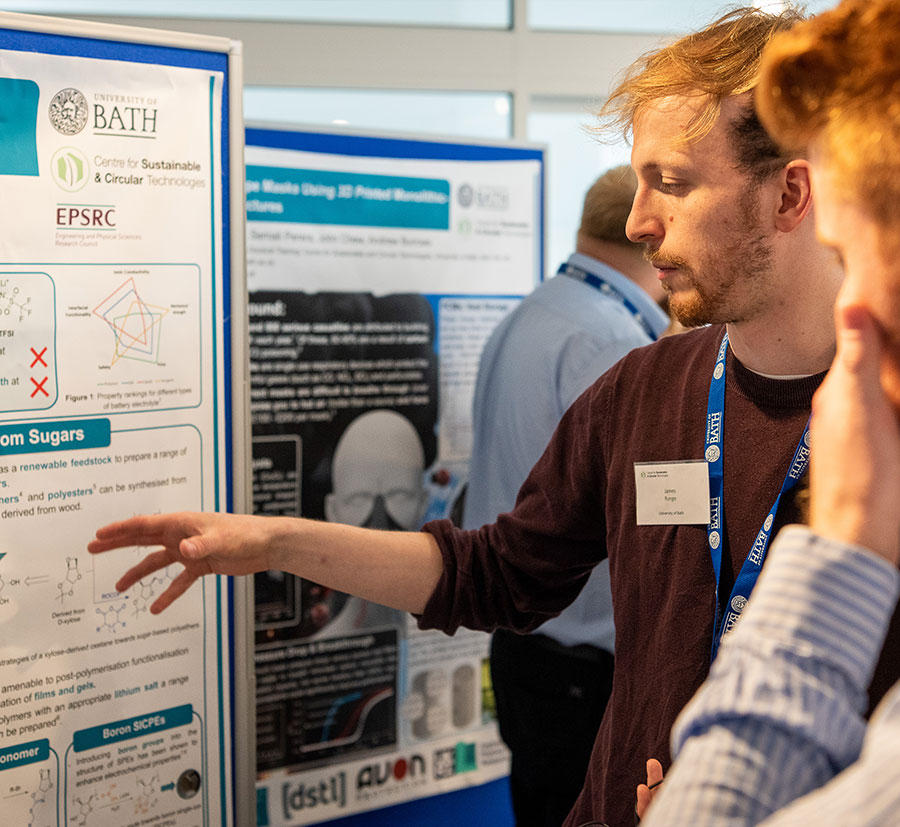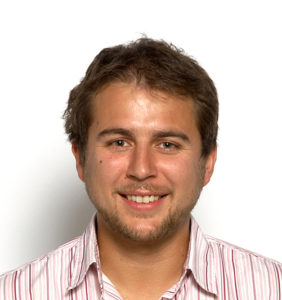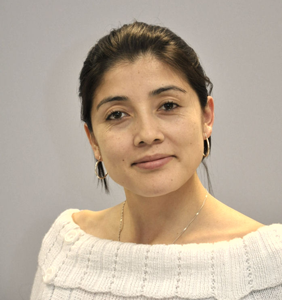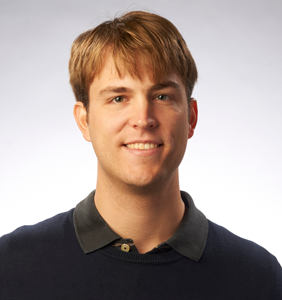About Us
Driving Innovation
The CDT in Sustainable Chemical Technologies : A Systems Approach (CSCT) places fundamental concepts of sustainability and circularity at the core of research, innovation, training and outreach in applied science and engineering. Having introduced a pioneering, interdisciplinary, cohort-based doctoral programme in sustainable chemical technologies that graduated 10 cohorts of CDT students from 2008 – nearly 100 of whom have been employed by industry at around three times the national rate for equivalent PhD graduates – the CDT now wants to respond to the current needs of industry and society through full integration of whole systems thinking in an innovation-driven applied research context.


A Legacy of Impact
Since its establishment in 2008, the centre has received over £50M in funding, graduated more than 170 PhD students, involved over 100 academic staff and interacted with over 80 external partners. Through our public engagement activities, we have shared our research with a wide range of audiences including policymakers, school children, businesses and festival goers.
Our CDT’s Contribution to the UK Economy
An independent report by Warwick Economics and Development has revealed that the University of Bath’s CDT in Sustainable Chemical Technologies has contributed four times its investment to the UK economy. Since its launch in 2009, the CDT has trained 149 PhD graduates, with an impressive 70% securing careers in industry or the private sector—almost three times the national average for PhD graduates in engineering and physical sciences.
total economic contributiontotal economic contribution
successful spinout companies in sustainable technology
scientific publications
research, innovation, and public engagement prizes
With research spanning energy, biotechnology, manufacturing, and healthcare, our graduates are at the forefront of driving innovation and sustainability across the UK and beyond.
Our Vision
To deliver a CDT that will train at least 70 PhD level scientists and engineers to embrace a whole systems approach in the development and implementation of sustainable chemical technologies. To contribute to solving important challenges such as replacement of fossil resources with sustainable alternatives, utilisation of CO₂, plastics pollution, valorisation of waste, reuse and recycle of molecules, materials and products, and elimination of waste from processes.
What is a Systems Approach?
Systems are groups or combinations of interrelated, interdependent, or interacting components forming distinct collective entities. Note that the interaction of the system components produces an outcome or ‘function’ that is greater than the sum of the individual components.
An example of a system is a clock, whose gear wheels, levers and springs work together to tell the time. Note that the interaction of the system components produces an outcome or ‘function’ that is greater than the sum of the individual components. No single gear wheel, lever or spring carries the time-telling capacity on its own, but the function of ‘telling the time’ emerges when all the parts are working together. So ‘telling the time’ is said to be an ‘emergent’ system property
A system can be a physical object, like a clock. It can be a process, like a chemical reaction between reagents A and B, from which products C and D emerge. It can be non-material, like a management system in an organization, whose components might include the processes and rules that link all the departments and people together and whose emergent properties might include the product or service they produce, the profit they make or the societal impact they create as a result of their efforts.
Systems thinking is a set of synergistic analytic skills used to improve capability to identify and understand systems, predict their behaviours, and devise modifications to them in order to produce desired effects.
These skills provide the ability to visualize, articulate, and solve both complex and uncomplicated problems and concepts and make decisions that are sensible and based on available information. Such skills include demonstration of the ability to apply logical thinking to gathering and analysing information, designing and testing solutions to problems, and formulating plans
Alumni Reflections
More than 50 students have now graduated from the CSCT. Spread across the globe, these graduates continue to benefit from our vast and varied network long after they leave. Marking the 10th anniversary of the Centre, we asked our alumni “how CSCT impacted their career paths”. Take a look to see what some of them had to say.

On a daily basis I have to work and communicate effectively with a cross-disciplinary group whilst also quickly becoming familiar with new concepts; this is in no small part thanks to the breadth of exposure I had during my time in the CDT. Close links to industry and an understanding of the triple bottom line pays dividends when trade-offs must be made between technical curiosity and business success.
Tom Forder
Cohort 2009
My time at the CSCT was a huge boon for my career, knowledge and general well-being. The incredible people still act as a powerful network, the knowledge of chemistry, engineering, public engagement and most importantly how to pick up new skills quickly has helped me progress my career through diverse areas such as research and development, engineering challenges, quality systems and IT. The training and experience from my time in the CSCT has meant I can adapt quickly to the constantly evolving world of business.
Daniel Minett
Cohort 2009
Duygu Celebi
Thanks to CSCT, I was able to work across disciplines (Chemistry and Pharmacy) and also was able to do an internship which played a vital role in helping me to get my current job. There are many aspects of CSCT which you cannot find in any other traditional PhD programmes. Firstly, the MRes year of the programme lets you delve into two projects from which you have the flexibility to pick one and move forward to your PhD. Secondly, you are given the opportunity to present your work at an international platform every year which provides a great exposure and enables you to meet many people in your field , both in industry and academia. Thirdly, you can do an internship at your chosen place/field which is brilliant because this could also open doors for future jobs. Overall, I am proud and lucky to be part of the centre, where they have provided me with the right tools and skill sets to start my career in the industry I wanted to work in.
R&D Manager I Personal Care Innovation for DOVE
Cohort 2010
I've always said applying to the CSCT was one of the best decisions I have ever made. It was (and still is!) an accomplished, inclusive and ambitious research centre - I'm proud to have been a part of it. Whilst there, I carried out productive research which I was able to disseminate via several peer-reviewed journal articles and academic conferences. The further opportunities also provided by the CSCT directly affected my future career path - during my PhD CSCT funding allowed me to spend three months as a visiting researcher at a US government lab, the National Renewable Energy Laboratory. This experience, which likely would not have been possible otherwise, was pivotal to my success in applying for a Postdoctoral Research Associate position at another US government lab, Los Alamos National Laboratory. After two years there, I successfully applied to my current position (Scientist in Chemical Purification & Process Development) in a San Francisco Bay Area biotechnology company, Amyris. This role requires skills and knowledge from both Chemistry and Chemical Engineering, which I learned whilst at the CSCT. I can confidently say my career so far would not have been as successful if it wasn't for the multidisciplinary education and unique opportunities made available to me during my time at the CSCT.
Rhodri Jenkins
Cohort 2010
Joining the CSCT provided me with valuable experience to help develop my career as an expert in industrial remediation. As a member of the CSCT I had the opportunity to collaborate with a multidisciplinary group working toward sustainable technologies, in which I specialised in the development and testing of nanomaterials for industrial water treatment. This experience enhanced my research, technical and communication skills, and was essential in enabling me to obtain the Chartered Chemical Engineer status and be selected as a Chartered Member of IChemE. Furthermore, the knowledge and skills I gained have played an important role in my previous position as a Lecturer in Chemical Engineering and in my current job working as Water Engineering Lead for an innovation company that researches and develops materials for the selective adsorption of Perfluorinated compounds.
Anyela Ramirez-Canon
Cohort 2010
My time at the CSCT has been hugely helpful in my career path so far. Not only did it spark my interest in the broader area of sustainability, but it greatly improved my ability to work independently and present to a wide range of audiences. Working in a multidisciplinary team has also been invaluable in giving me the confidence to span the gap between science and engineering in my career.
David Miles
Cohort 2011
The knowledge of sustainability, the ability to communicate scientific concepts and the transferable skills that I learnt during my time at the CDT have been invaluable in my career in the civil service.
Fraeya Whiffin
Cohort 2011
The CSCT is exceptional in its comprehensive approach to researcher training. It has provided a multidisciplinary training programme which has allowed me to successfully forge a career in scientific consultancy. The transferable skills provided by the CSCT has enabled me to successfully and quickly integrate into a consultancy environment and furnished me with the skills and experience needed to effectively communicate highly technical concepts to key decision makers within my current role.
Joseph Donnelly
Cohort 2012
By providing me with the liberty to propose and select my own PhD project, my doctorate in the CSCT gave me the opportunity to develop my own research ideas and techniques. In addition, the taught courses of the MRes year (particularly public engagement) helped me to develop strong communication skills, which were subsequently enhanced through ongoing activities encouraged by the centre. I strongly believe that these skills have been fundamental in helping my subsequent academic progression, first by working as a Research Associate at Imperial College, before being appointed as a Lecturer at Loughborough University within 18 months of my PhD submission.




